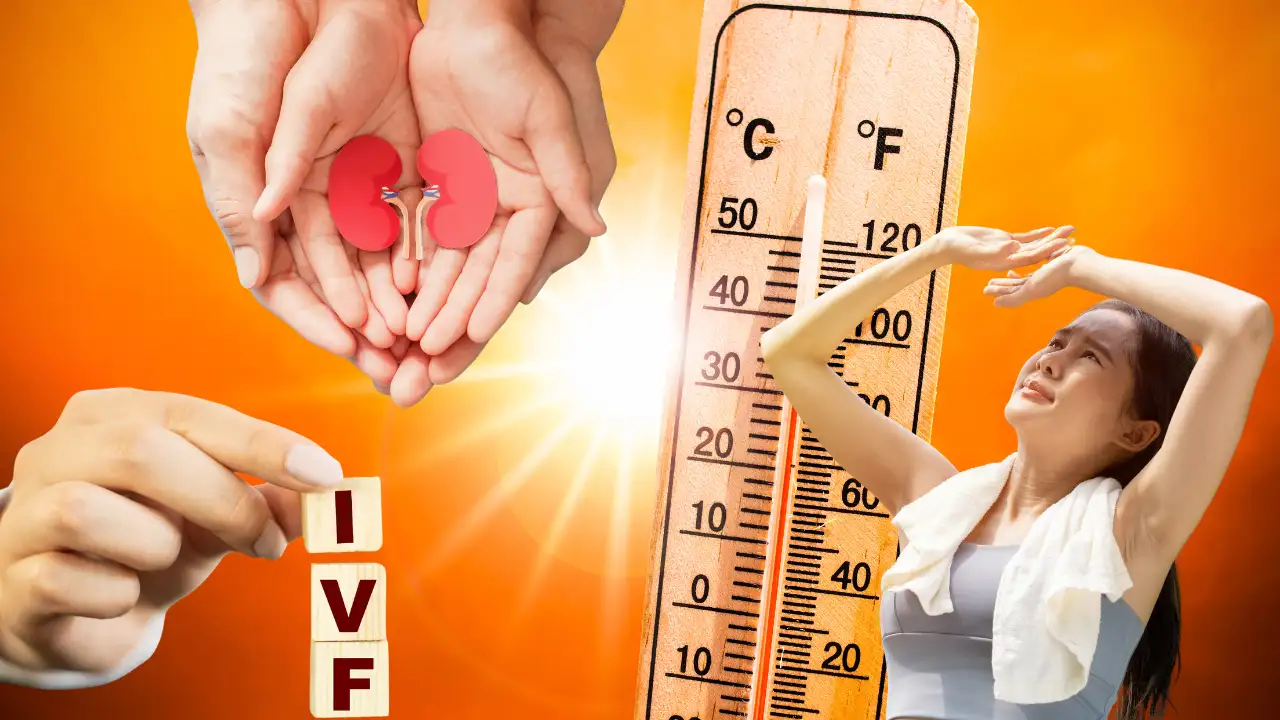As temperatures soar during the peak of summer, taking care of your health becomes even more crucial. Dehydration, heat exhaustion, and stress on vital organs can all be avoided with simple lifestyle adjustments. We turn to three doctors, who share essential advice on how to stay safe, hydrated, and healthy during the hottest months of the year.
Keep Your Kidneys Happy in the Heat
According to Dr Bhanu Mishra, BLK Max Hospital, kidney health often takes a hit during extreme heat due to dehydration and electrolyte imbalance.
“Hydration is the key. Make sure to drink a good amount of water daily, particularly during hot weather,” says Dr Mishra. He recommends consuming hydrating foods such as watermelon, cucumber, and oranges to support kidney function.
Additionally, he advises avoiding salty, processed foods, as excess sodium can put a strain on the kidneys. He also suggests timing workouts during cooler parts of the day—early morning or late evening—to minimise stress on the body.
IVF Care in Summer: Stay Cool, Stay Positive
For those undergoing IVF treatment, summer heat adds another layer of care and caution. Dr Puneet Rana Arora, CIFAR, Gurugram, points out the importance of hydration and gentle nutrition during this sensitive phase.
“Drink plenty of water to prevent dehydration, which can affect overall health and IVF success,” says Dr Arora. She recommends light, nourishing foods like fresh fruits, vegetables, and whole grains to support reproductive health.
Avoiding direct sun exposure and wearing loose, breathable clothing are simple but effective steps to stay cool. Dr Arora also stresses the importance of rest, gentle exercise like walking, and consulting your physician regularly to adjust medications or lifestyle factors for optimal results.
Guard Against Heat Stroke
Heat stroke is one of the most dangerous risks during extreme summer weather. Dr Vinit Banga, Fortis Hospital, Faridabad, outlines vital prevention strategies.
“Stay hydrated throughout the day and avoid alcohol or caffeinated drinks, as they dehydrate the body,” cautions Dr Banga. He advises staying indoors between 10 AM and 4 PM, wearing light cotton clothing, and using sunscreen when stepping outside.
Dr Banga also warns against leaving children or pets in hot, confined spaces such as cars. Watch for early signs of heat exhaustion, including dizziness, nausea, or heavy sweating, and act immediately to cool down and replenish fluids.
Get Latest News Live on Times Now along with Breaking News and Top Headlines from Health and around the world.
